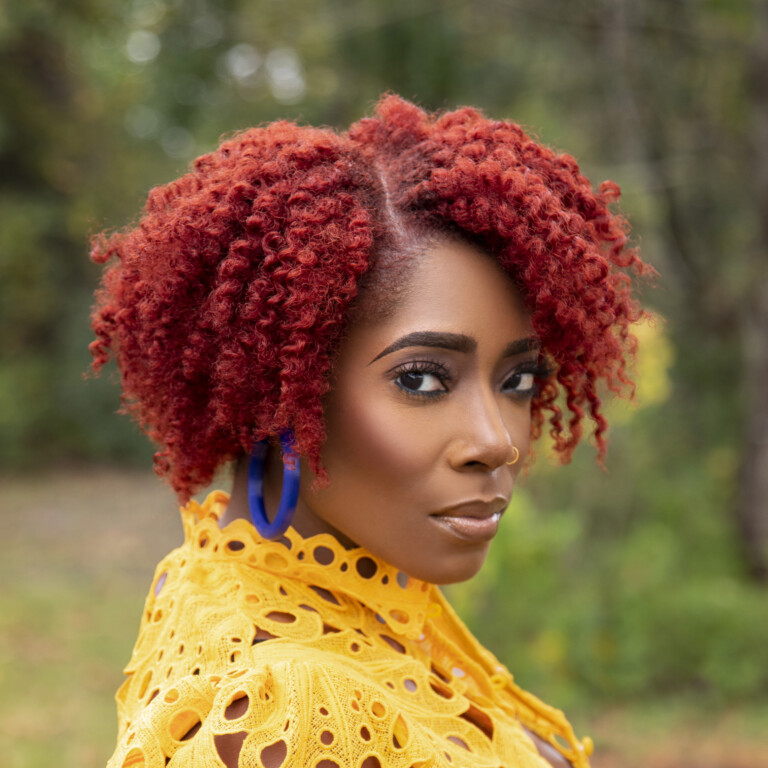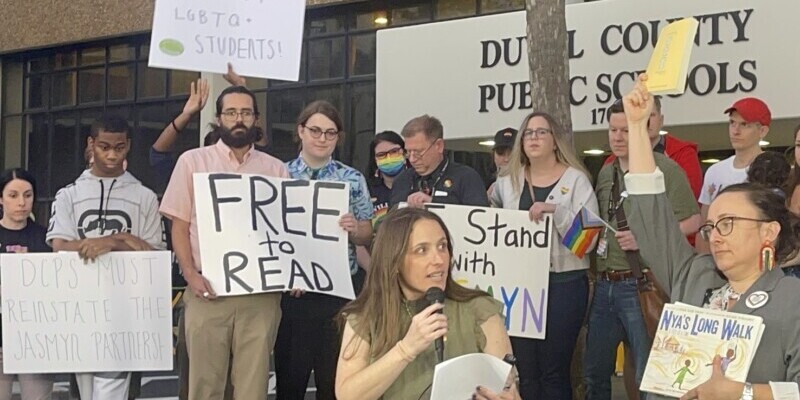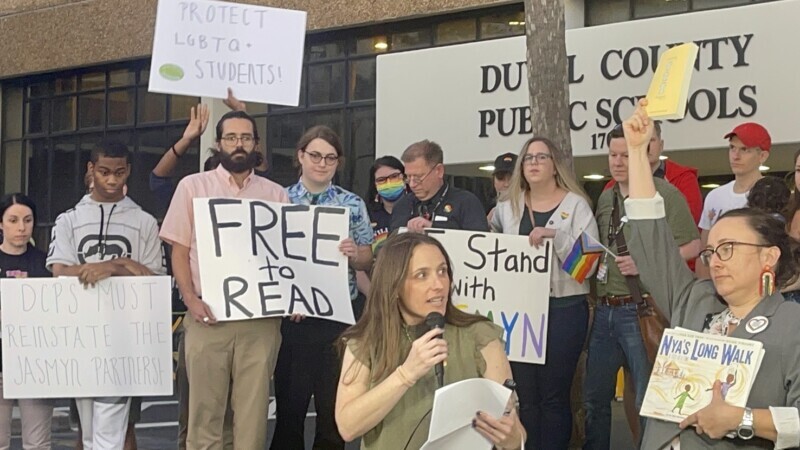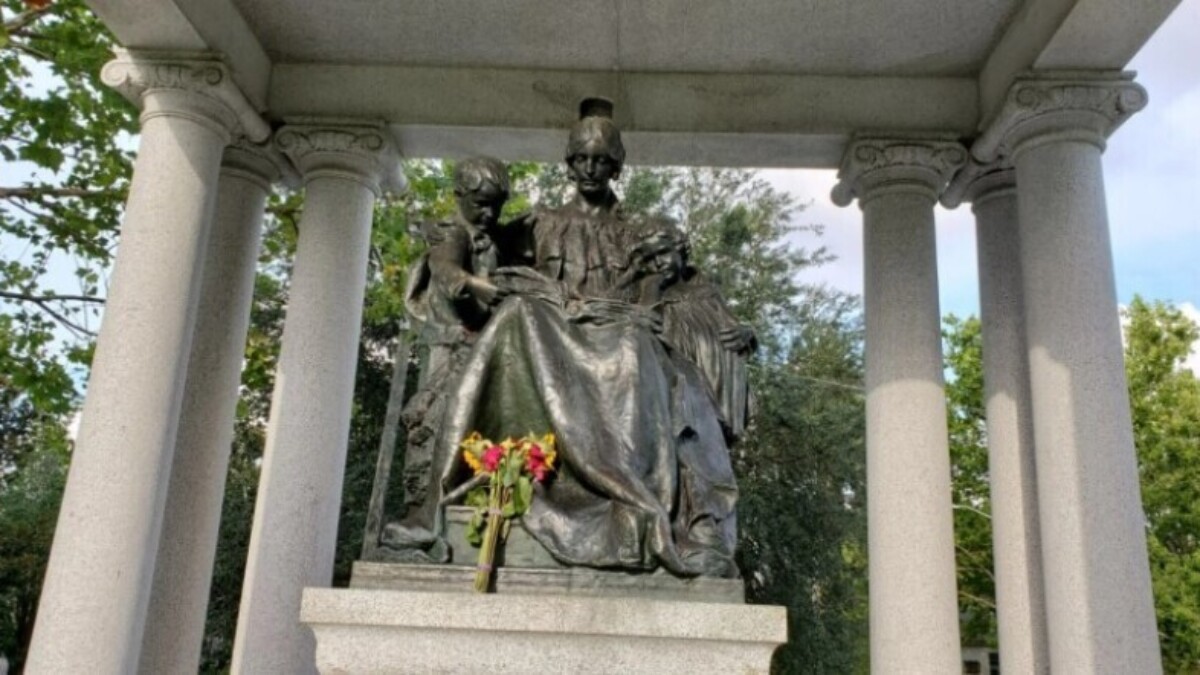
Late last year, my new book was released from LSU Press. Mardi Gras Indians details the history and evolution of one of New Orleans’ most storied carnival cultures. The text details how, in the aftermath of the transatlantic slave trade and the genocide of indigenous peoples in the U.S., a merging of the two groups created a culture and tradition still practiced today that is steeped in rebellion, resistance and beauty.
With this short description, I can easily assume that had my book been part of the Essential Voices Classroom Libraries collection, it too would have been banned for content that violates Florida’s dizzying spate of laws that silence history and truth on subjects that make some parents and school board members uncomfortable.
Books about Martin Luther King Jr. and Rosa Parks were banned, and their legacies have already been so white-washed to be made palatable to mainstream audiences that students and some adults fail to realize Ms. Parks, and Claudette Colvin before her, risked death when they refused to give up their seat to a white passenger in 1955 Alabama.
Furthermore, as we prepare to celebrate Dr. King’s birthday this month, let’s not forget he was assassinated because he believed in Black liberation. Yes, he may have preached nonviolence, but his goal was liberation for his people and he was killed because of it.
If the sanitized versions of these historic figures’ lives are considered controversial, then there really is no hope for students to learn the plight of other marginalized groups who continue to fight for freedoms and equality they’re supposed to be guaranteed.
After a review, the Duval school district rejected nearly four dozen books from the Essential Voices Classroom Libraries collection, and stashed away more than two dozen more for further review. The district doesn’t consider the preemptive strike a “book ban,” but that’s exactly what it is.
Furthermore, it’s another signal — a dog whistle to the groups who are the subjects of these banned books that their stories don’t matter. Their experiences aren’t worthy of being shared, and there is no value to their perspective and the contributions they’ve made to this country. Their presence is not wanted. We/they should remain invisible.
This quest to dull difference by school districts at the behest of an overzealous governor placating the fringes of his political party to further his career aspirations is not new. When I was in school, it was taught to us as the American melting pot. Or assimilation. Many cultures and groups blending together to make Americans.
But we are hardly as sumptuous as gumbo or as satisfying as okra soup, easily melding for a bite that goes down in a single swallow. We’re more of a chopped salad. The ingredients and spices we don’t care for picked out and set aside until all that is left are greens, one indistinguishable from the other.
This is America. This is Florida. This is Jacksonville, where the closer you are in proximity to whiteness the more easily accepted you are. The same goes for identifying as cisgender and heterosexual. Any deviations from whiteness and heterosexuality lead to a fight for rights and equality all because you love or were born differently.
Gov. Ron DeSantis wants schools to focus on “academic excellence and the pursuit of truth and not the imposition of trendy ideology.” But how are Black people, brown people, indigenous people, gay people, trans people and nonbinary people really imposing on schools and other students? What are they doing that is so harmful? Or is it their mere existence that is considered the harm? The audacity that they/we have the nerve to breathe?
It’s hard to erase or discredit what refuses to go away. But banning books creates an insular environment for homogeneous hate to take root and blossom. Books are one of the few mediums that allow a person to feel and understand at a cellular level another person’s life experience. To eliminate that opportunity for students to expand beyond their own surroundings and myopic worldview is a disservice to them and our future.
Teaching students that we are all the same — from the same background, with the same history, with the same desires and the same thoughts — is a lie. We are not the same. But we are all here and have the chance to learn how our differences make us better and stronger instead of pretending they didn’t exist.

Nikesha Elise Williams is an Emmy-winning TV producer, award-winning novelist (Beyond Bourbon Street and Four Women) and the host/producer of the Black & Published podcast. Her bylines include The Washington Post, ESSENCE, and Vox. She lives in Jacksonville with her family.






